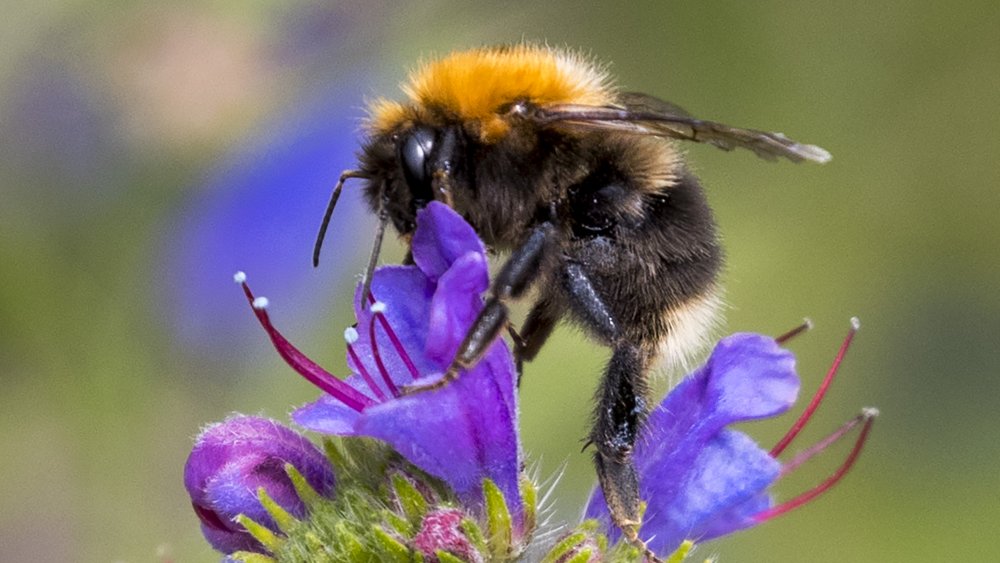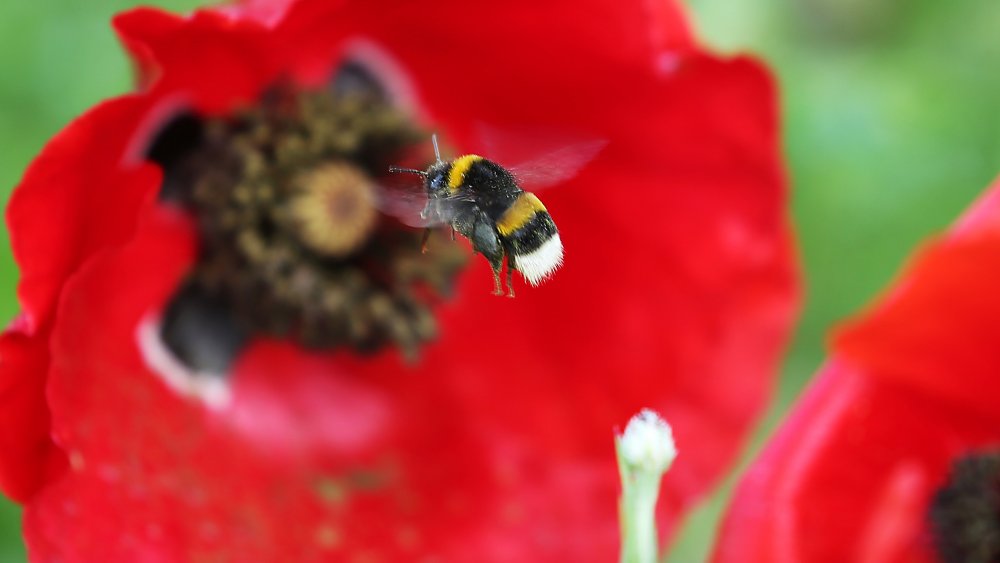Baby Bee Brains 'Permanently, Irreversibly' Damaged By Pesticides
As the world's population of bees continues its series of terrible, horrible, no good, very bad days, a study has now revealed that pesticide use permanently damages the brains of baby pollinators, irrevocably impeding their ability to learn and function. That's the bad news. There's good news later, but we have to focus on the glass-is-half-empty part of the story for right now.
According to SciTechDaily, a study conducted at Imperial College London has revealed yet another previously unnoted side effect of pesticide use, namely that it leads to irreversible damage in the brains of bees exposed to the chemicals while still in their larval phase. Exposure doesn't have to be direct, either, and often occurs when the young insects are fed contaminated nectar brought into the hive by worker bees with, we're sure, noble intentions. The study's lead researcher, Dr. Richard Gill, explained: "Bee colonies act as superorganisms... when young bees are fed on pesticide-contaminated food, this caused parts of the brain to grow less, leading to older adult bees possessing smaller and functionally impaired brains."
Aw honey, no
Utilising micro-CT scans and cognitive testing, researchers studied the brains of different groups of test subjects, with some bees being fed neonicotinoids in their larval stage, some after reaching adulthood, and the long straws being given no pesticides at all. What they found was disheartening. Bees exposed to the chemicals as larvae actually possessed less brain mass than their organic-fed, Whole Foods enthusiast counterparts. Specifically, there were significant losses in the portion of the brain responsible for learning function, known as the "mushroom body" — and if you think you could come up with a better name for bee brain parts, then maybe you should've become a scientist, smarty pants.
After testing bees exposed as larvae over a twelve day period, it was discovered that their cognitive function showed no signs of repairing itself. This, according to the study, means a potentially permanent affliction, when considering your average bee's short lifespan.
That's the bad news. The good news is, we can start calling them "dumble-bees" now. And if that's not a spoonful of sugar helping the collapse of agriculture go down, then we don't know what is.

